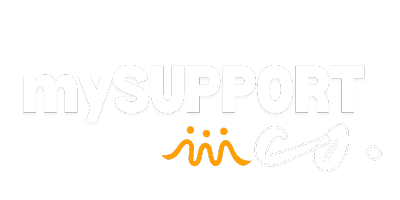What Can You Use NDIS Funding For? (The Yes List)
Navigating the NDIS can feel confusing — especially when you're not sure what your funding actually covers. At MySupport Co., we’re here to simplify things.
Here’s a breakdown of the kinds of supports the NDIS can fund — known as the “Yes List.”
First, What’s the Golden Rule?
To be funded by the NDIS, a support must be considered “reasonable and necessary.” This means it:
Relates directly to your disability
Helps you achieve your goals
Improves your independence, daily life, or community participation
Is value for money
Is the responsibility of the NDIS, not another government service
Source: NDIS Guidelines – Reasonable and Necessary
The Yes List: What’s Commonly Funded
Category Examples of Supports Daily Living (Core) Help with dressing, showering, toileting, meal preparation, cleaning
Transport Taxi or support worker transport to appointments and community activities
Social & Community Access 1:1 or group support for outings, hobbies, events, holidays (STA), and skill-building
Therapies & Allied Health Occupational Therapy, Speech Pathology, Physiotherapy, Psychology, Behaviour Support
Support Coordination Help understanding your plan and connecting with services
Skill Building (Capacity) Cooking classes, budgeting support, employment assistance
Assistive Technology (AT) Equipment that helps you do things more safely and independently
Home & Yard Support Help with household chores if related to your disability
Supported Travel Travel with a support worker to medical appointments, programs, or social events
Examples — What the NDIS Might Fund
Here are real-life examples of what’s often included in the Yes List:
Assistive Technology
Non-slip mats and shower chairs for safer bathing
Wheelchairs, walkers, and mobility scooters
Communication devices (e.g. iPads with speech apps)
Adaptive utensils like easy-grip forks or angled knives
Grab rails, bed rails, or pressure cushions for safety
Smart devices to increase independence (e.g. smart lights, voice-activated assistants)
Hearing aids, alerting doorbells, and vibrating alarms
Example: A robot vacuum may be funded if it helps someone with upper-limb impairment avoid hiring a cleaner.
[Source: https://ourguidelines.ndis.gov.au/]
Example: A guide dog may be funded if it helps a participant safely travel to university, reducing barriers to study and social life.
[Source: https://ourguidelines.ndis.gov.au/ ]
Meal Prep & Delivery
A support worker to help you shop, plan, or cook meals
Funding for meal delivery services when the cost of preparing and delivering the meal is separated from the food cost
PEG/HEN feeding supports and related nutrition equipment
NDIS won’t fund your groceries — but they may fund help to prepare or deliver meals if disability makes it hard.
Therapies & Professional Support
Psychology to support mental health, trauma recovery or behaviour
Speech Therapy for swallowing or communication
Occupational Therapy for home modifications or daily life skills
Therapy assistants to help deliver structured programs
Social & Community Participation
A support worker to attend the gym, art class, sport, or library
Group outings that build social skills
Short-Term Accommodation (STA/respite)
Household Support
Disability-related home cleaning or deep cleans (e.g. when a participant has reduced immunity)
Garden maintenance if you can’t safely manage it
Minor home modifications like rails, hand showers, or step adjustments
Final Tips
Not every item is automatically approved. Funding depends on:
Your individual goals
Supporting evidence
Whether the support meets all “reasonable and necessary” rules
Some items (like mid/high-cost assistive tech) may need a formal quote or assessment.
Your Support Coordinator can help advocate for funding and get the right paperwork.
Remember:
If you’re ever unsure whether something is covered, speak to your Support Coordinator at MySupport Co. We’re here to help you get the most out of your plan — with clarity, compassion, and confidence.

